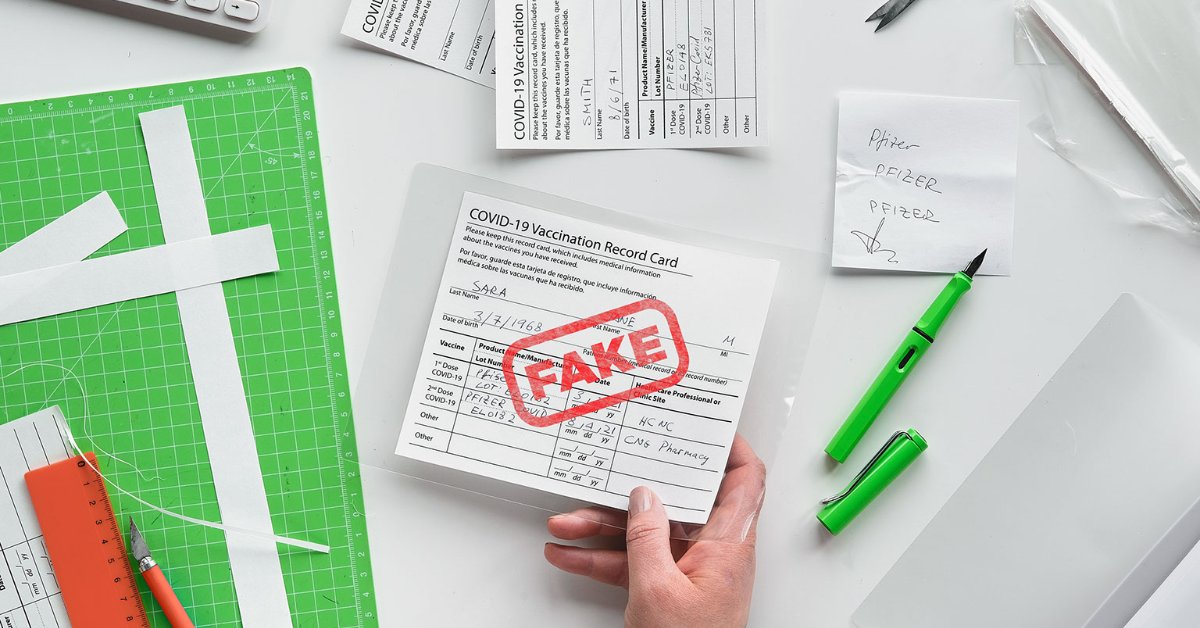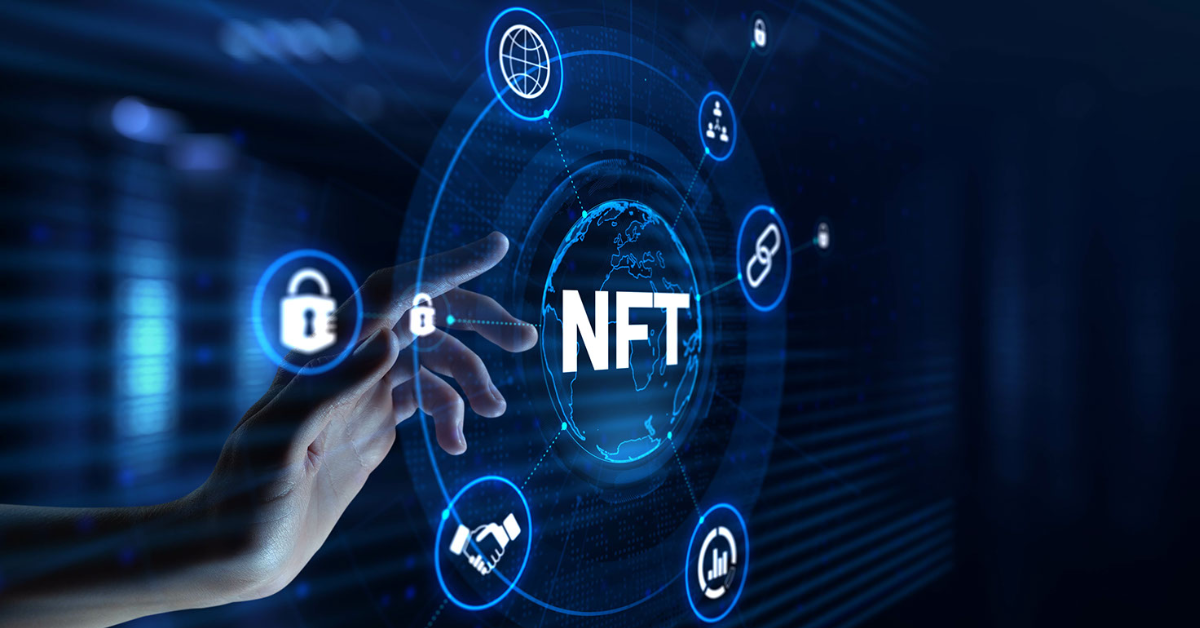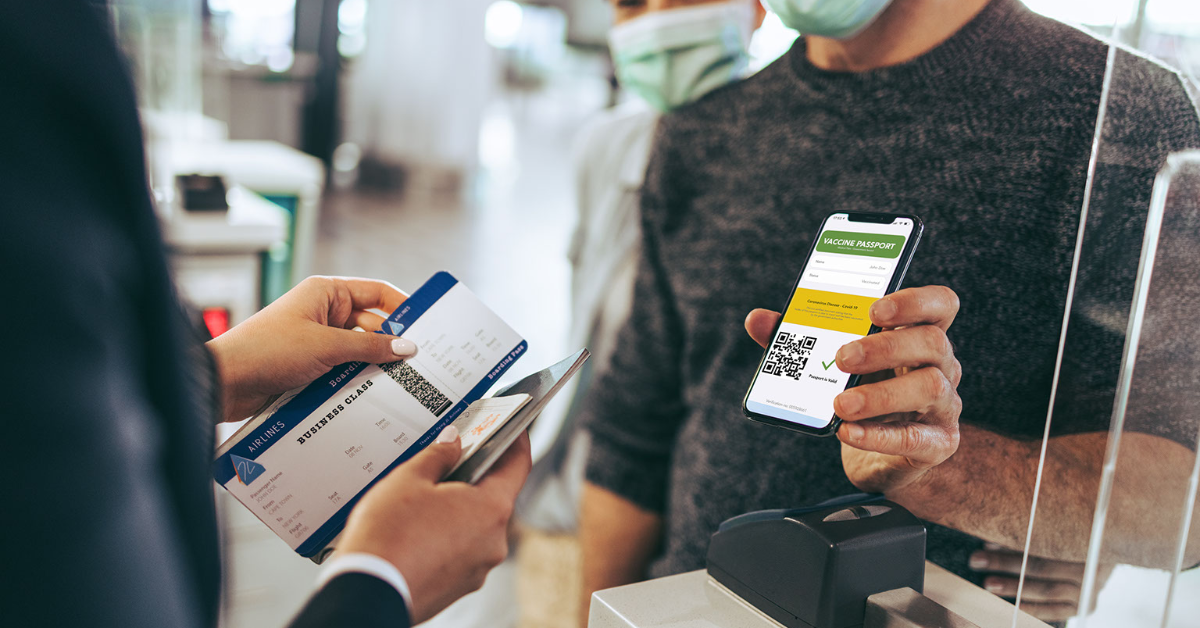Vaccine passports have been the talk of the town lately. And everyone, I mean everyone, has an opinion on the matter. Why do we need them? Will they be secure? What is to stop someone from forging one?
As we try to leave the pandemic in our past, one thing is clear. Most governments are about to screw this up. Now, don’t get me wrong, I think the concept is very important. Whether we like it or not, we need a way to prove who’s been vaccinated and who hasn’t been. That’s just the way it is. On such a polarizing topic, there’s no way everyone is going to agree. And some people are ready to go to some extreme measures to blend in. Yes, I’m talking about fake vaccine passports.

Most countries are scrambling to come out with their own vaccine passports. However, in an effort to be more inclusive, they’re going to miss the mark. A mixture of digital and physical cards are going to cause a huge failure in our system. If we haven’t figured out how to stamp out counterfeit cash, we have no hope in stopping fake vaccine passports. Most authorities have already admitted that there will be some hiccups along the way. The ‘some’ part of it is definitely an understatement.
So, how do we best move forward in our new world? Well, the answer has been right in front of us for a while: NFTs.
We Need NFTs and NOW
The average person might just associate NFTs with novelty and entertainment. I don’t blame them. Every day there’s a new headline about NFTs making millions in the art and entertainment industries. But the technology behind NFTs is exactly what we need to solve this authentication issue.
And if you don’t think we have an issue on our hands, you’re in denial. Simply make your way over to the dark net and you’ll find fraudsters selling vaccine passports, negative COVID tests, and more for a bargain. You can buy a fake vaccination certificate for as low as $150. And it doesn’t stop there. Buy two negative test results, and get the third free! Needless to say, if you want some fake records, you can get them.
Now, why are people so desperate to get their hands on a fake vaccine passport? Well, it is going to be the ticket of admission, moving forward. And companies around the world are cracking down. But is this a good thing?
Should Workplaces Force Employees Back to Office?
Some big name companies have recently made headlines for requiring all of their staff to get vaccinated. It’s that or their employees hit the road. Unfortunately, I think that they haven’t really thought this through. Desperate people will commit desperate acts. Do you really want to put your entire team at risk by enforcing mandatory vaccines AND mandatory office attendance. This seems like a recipe for a lawsuit. And for what? Shouldn’t your employees have a say about whether or not they want to come back into the office, especially full-time? This seems pretty tone deaf.
Over the last year, we’ve proven that remote work isn’t something to fear. In fact, we should embrace it! I think we’ve all heard the phrase ‘my commute is killing me.’ But you probably didn’t realize how much. According to studies, commuting is downright terrible for your health. A commute of more than 10 miles is likely to result in higher cholesterol, higher blood pressure, and a greater risk of having a heart attack. All of this just to go sit in a cubicle for 8 hours? No thanks.
At NetCents, we decided that we’re not going to send our employees back into the office full-time. Ever. Call it forward-thinking, call it enlightened. I just call it smart. Giving employees a choice in the matter is not only better for their health, it’s better for society. Like I said, put someone’s job at risk, and they might put your health at risk. Fake vaccine passports will be a real problem. Mandating a return to the office doesn’t seem like such a good idea anymore, does it?
How Will NFTs Save the Day?
Well, NFTs are the perfect solution to this problem because they exist to certify authenticity. And what needs to be more authentic than vaccine passports? The NFTs would be unique to each individual and the data would be impossible to tamper with or replicate. And one of the best parts? Blockchain technology is universal. NFTs can be accessed from anywhere in the world.

Right now, each country is basically doing its own thing. We’re about to see a whole lot of trial and error. But it’s not necessary! At least, there’s one place on earth that’s figured this out.
The Republic of San Marino, one of the smallest countries in the world, is lightyears ahead of the global superpowers. Digital vaccination certificates are recorded on a public blockchain by linking an NFT to the individual’s medical records.
Two QR codes are then created. One of them is compatible with any EU country, and the other is simply integrated into the blockchain. This means that it can be scanned anywhere in the world, and simply directs users to a web-based application.
Even though NFTs might seem super high tech, this solution is incredibly intuitive and safe. There’s no better way to feel confident that the information in vaccine passports is authentic.
As well, owning an NFT with your medical information would be way more secure than trusting some government app. Now, I’m not saying that governments have plans to abuse your data. But don’t you want to be reassured anyways?
Imagine getting a private key to your NFT. Now go somewhere that requires vaccine verification. You can choose the information that you want to disclose, and only share the minimum. Once again, blockchain technology is putting power back into your hands.
What Happens Next?
No matter what your opinion about vaccination is, I think everyone wants the same end goal. We want to put the pandemic behind us. But doesn’t it seem like that goal is getting harder to reach every day? New variants keep emerging, and we don’t have the right tools to fight them.
Vaccine passports might seem like the obvious answer, but we need to think more critically. By rushing the roll out, we’re only putting everyone at a greater risk. We need to rely on technology that we know works. NFTs are not just for entertainment anymore, they are here to save lives.
